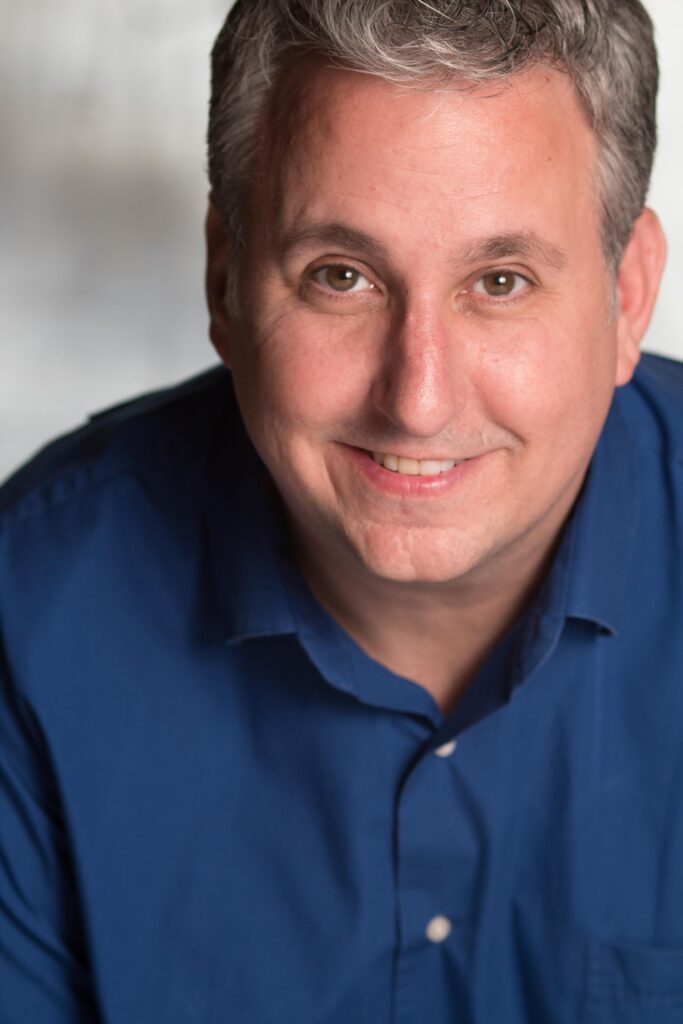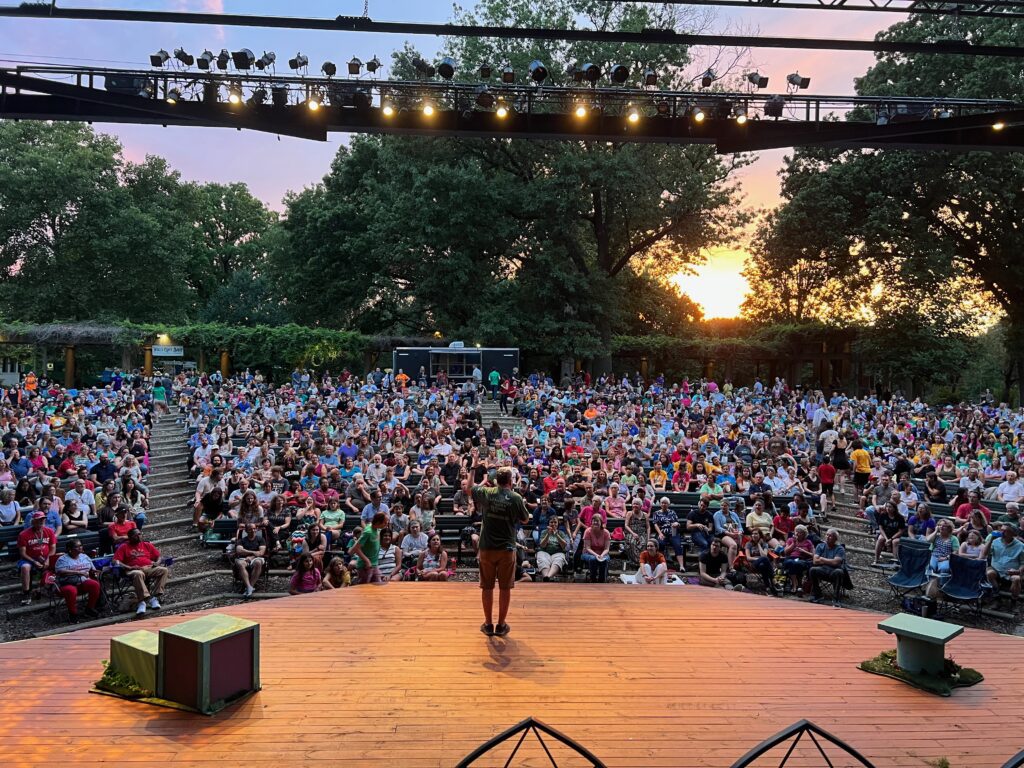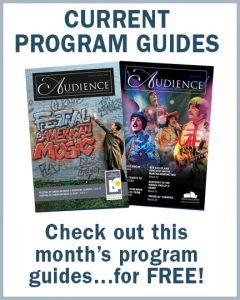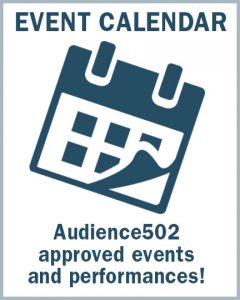Matt Wallace – Producing Artistic Director
Kentucky Shakespeare
By G. Douglas Dreisbach
Kentucky Shakespeare may be most known for its world-class Kentucky Shakespeare Festival in Central Park, but there is so much more to the organization. The group also provides education programs for schools, public performances, and community outreach programs. In fact, it’s the most comprehensive in-school arts education provider in the commonwealth. The group serves schools throughout the region with interactive educational programming directly tied to academic standards, helping to impact student achievement. Many of the programs explore conflict resolution, empathy building, and communication in a range of settings from preschools to senior centers.
We caught up with Producing Artistic Director, Matt Wallace, to hear more about what it takes to maintain excellence in the Shakespeare space, the programs they offer, and the importance and results of how said programs benefit students in the schools they visit.
Be sure to visit KYShakespeare.com for an updated schedule of events and more information.
Listen to the full interview below:
Doug Dreisbach: Congrats on the success of the last couple of seasons in Central Park as well as all the other programs you have going on. As the Producing Artistic Director, what are your main tasks and roles day to day, as well as annually?
Matt Wallace: I oversee a combination of both the artistic and the managerial leadership of the company, but the main thing is implementing, guiding, and overseeing our mission and vision. We have many different programs and operate the longest-running free, non-ticketed Shakespeare festival in the country. This is our 65th season coming up! We are also the most comprehensive in-school arts provider in the state, so we are touring everywhere providing indoor productions, community programs, and more. I get the honor and the privilege to oversee all of that and drive the mission forward.
DD: What areas do the programs cover?
MW: We tour all around the region, including Southern Indiana. Just last season alone, we served 39,000 students in 73 counties at almost 200 schools, providing about 700 hours of educational programming ranging from preschool all the way up to senior centers.
DD: What is the initial reaction you get from students when you go to the classrooms? Is it like, “This is just another boring program?” Or do you see their eyes light up and maybe some curiosity?
MW: Yeah, I think we see lots of eyes light up. I mean, No. 1, they’re usually excited to be out of class, but also because they are doing something engaging and interactive. All our programs are interactive when we come into schools, and we work to take Shakespeare off of a pedestal and make it interactive, engaging, accessible, and fun. Students really love it, and we tour everywhere from Downtown Louisville to rural parts of Appalachia with these various programs from performances to workshops.
DD: What have been the most rewarding things you’ve done in your time there?
MW: I would say that a big one was when we expanded the summer season from one professional production, and our student production to six or seven productions in our summer season, expanding that length to 11 weeks. I would also include the creation and expansion of our parks tour. It was exciting since it took Shakespeare to parks outside of Central Park. We started with about nine parks in 2014, and we toured 38 parks this past season and will be hitting even more this spring.
Another big advancement was the expansion of our indoor productions. This was monumental as we have never really done indoor, ticketed shows.
And, of course, our new headquarters was something great that came out of COVID time. We lost our office and rehearsal space down at Artspace, but we were able to move into this 8,000-square-foot facility, right by Central Park. And thanks to 33 incredible donors, we were able to design it to fit our needs. Now we have all our offices, our costume shop, and a 4,800-square-foot rehearsal hall right here by Central Park. There is actually a lot to be proud of, and it wouldn’t be possible without the dozens and dozens of amazing people who made it possible, our staff and our board and all of the main donors that made all of this a reality.
DD: We all know that without the donors and the philanthropy from a lot of people, a lot of things wouldn’t be possible, especially with the arts. How do you work with donors and sponsors? Do you personally talk to them? Or do you have other staff that does that?
MW: It is definitely me. I mean, if somebody donates $1 or $50,000, they’re going to get a personal thank-you from me, a handwritten note. For me it’s that personal contact and stewarding relationships with our donors that makes a difference. I think it is also important when you come to Central Park. It’s going to be me onstage, at intermission, explaining why we can use our donations, and also hopefully they will see what we can do with it, because we rely heavily on the generosity of our donors.
DD: Do you see any interesting trends when it comes to donors? Are they giving because they believe in art in the city, or specifically Kentucky Shakespeare and what you all are doing?
MW: I’m not sure about other groups but for us, we’ve grown the number of donors in a very large way. When I started 12 years ago, we had a few hundred donors, and in our last fiscal year, we had over 1,000 individuals donate to us, anywhere from a dollar to 50 grand. But they are all equally important. It has been exciting to see some of our donors who start out at the lower level, and then they realize the impact and what we’re doing, and they choose to support at a higher level. Eighty-five percent of our budget goes to program services, and we are proud of that. We strive to make sure that we really steward each and every dollar responsibly as a charity.
DD: With great attendance for Kentucky Shakespeare in Central Park the last few seasons, and donations going up considerably, it seems that that the trajectory of everything is going really well. But overall, what are your thoughts on the arts in Louisville? Where we’ve been, where we are now, and where do you feel we are going in the future?
MW: I think everyone is continuing to build and the world looks different post-COVID. I think we have a lot more competition with streaming devices and other forms of entertainment, so I think — and you see this in our arts community, just the wonderful creativity, exciting collaborations, outside-the-box thinking, exciting programming, and I think that’s what’s changed a lot. There’s so much exciting programming going on, and we must do that to make sure that we’re relevant and needed in our patrons’ lives, because there’s so much competition.
We really need to look at, how can we break down barriers? How can we serve more people? And some of it is arts groups bringing the art to where people live and engaging with them and engaging them. Removing barriers can include providing transportation to get them to us or eliminate financial challenges. I think something great you’re seeing in this city is the Cultural Pass with Fund for the Arts that is celebrating its 10th anniversary. I would like to see the Cultural Pass expanded to a year-round program to help further remove barriers for people between art and themselves. That would be great to see.
DD: Where do you get your inspiration or leadership for these kinds of programs, whether it be going around the state — do you see these from other markets, other states, other Shakespeare companies around the country? Where do you get your ideas?
MW: I think it’s a mix. A lot of my ideas just come from my inspiration from this community, from our artists, from working at this company a long time and thinking about things that I’ve always wanted to do with this company. Like our outside-the-box Halloween productions. Like our silent disco show we just did. Some of that is just coming from that childlike inspiration of, “How we can reinvent this, or how we can engage with more people?” I have traveled to other Shakespeare festivals, particularly early in my tenure, when I was able to get a couple fellowships to allow me to go to Utah Shakespeare and see Shakespeare in the Park in New York. I’m constantly inspired by what theater companies are doing around the country, particularly Shakespeare companies, to make it more accessible and more inclusive.
We are part of the Shakespeare Theatre Association, which is an international network of Shakespeare theaters, and we learn from each other, and we share best practices. I also look at local places. I had the opportunity to see so many great local theater companies here, doing such exciting work. I get inspired by that. In Louisville, Chicago, across the river in Clarksville, and what they’re doing at Derby Dinner Playhouse, it’s such a rich scene here, and I’m constantly inspired by what others are doing.
DD: What are your favorite Shakespeare productions around the country that you’ve seen?
MW: I would say Sleep No More in New York was an inspiration to me in the world of immersive theater with Shakespeare. Going to the public theater in New York, Shakespeare in the Park there, was really inspirational. They started the same summer we did, but they are a ticketed free theater. We’re a non-ticketed free theater. But to be in another Olmsted-designed Park, the main Central Park in New York, and see what they’re doing there, was inspiring.
Also seeing local productions here, like the Three Witches Shakespeare, Much Ado About Nothing — I was extremely inspired by that and how they’re turning Shakespeare on its head and looking at it through a different lens. I’m usually most excited by whatever Shakespeare play I’m working on at that time, but there’s always room to be excited by what others are doing.
DD: What are you most excited about for this coming year?
MW: In January, a first for us is taking the stage at Actors Theatre of Louisville on the Pamela Brown Auditorium stage with our annual winter production. This will be Oscar Wilde’s classic comedy, The Importance of Being Earnest, presented in partnership with Actors Theatre of Louisville from January 11th through the 19th. We’re so excited to share this delightful comedy with some favorite Kentucky Shakespeare actors in the production. It’s going to be a great way to kick off the new year, and then the month after that we’re into the libraries in our Shakespeare in the Libraries tour, then the parks tour, then the summer season. We have many, many productions and exciting things to share this year.
DD: For someone who has never been to a Kentucky Shakespeare performance, give us the elevator speech pitch on why they should give it a try.
MW: If you’ve not been, just come once. Give us a chance. So many times, people will come for their first time to Shakespeare in Central Park, and then they might have a misconception or not know what it’s going to be, and then they come. Come as you are, and it’s a fun, accessible experience. We have food trucks in the summer. We have our Brown-Forman bar. We have community pre-shows. We have really engaging Shakespeare, and when people come, they’re very often just shocked, because they didn’t know what to expect, so we always say, “Just come once.” Just give it a shot, and I have a feeling you’re going to come back.
DD: Is there anything you would like to add before we wrap up?
MW: I would just like to say that our website is the place to go for everything. We have community and public events every single month, and all our many programs are listed there. Just visit KYShakespeare.com and that’s where you can also get a link to get tickets for the Actors Theatre local production.
For more information, visit kyshakespeare.com/
CLICK HERE for more Audience Spotlights with Leaders of Louisville Arts Groups.







